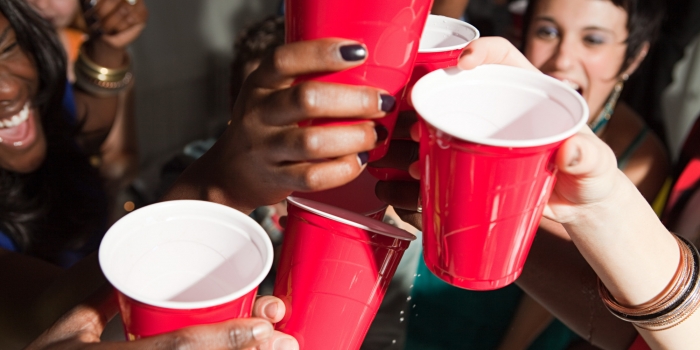On Nov. 22, the Engineering Undergraduate Society (EUS) will vote on a motion to eliminate subsidies for “binge drinking” events. The events in question are those that last for more than one day, and that budget for over three drinks per person, such as Frosh or EngGames. For-profit events like Open Air Pub (OAP) won’t be affected. That’s a good thing, because otherwise the EUS would likely have a mutiny on its hands. The purpose of the motion is supposedly to stop promoting binge drinking, the logic being that a faculty subsidy represents a tacit endorsement of drinking culture. However, this motion can only be seen as a principled stance against students subsidizing other students’ liquor. Apart from that, the motion, if adopted, will have little to no effect on McGill students’ drinking habits. Changing that will require a broader shift in campus culture.
According to a 2004 Canada Campus Survey, 95 per cent of Canadian students consume alcohol, and 18.4 per cent drink heavily—five or more drinks in one sitting, for men, and four or more drinks, for women—at least weekly. It makes sense that drinking is so prominent in university: It’s a way to be more sociable and have fun. These are very powerful incentives to drink, especially at a large university like McGill, where it can be hard to get to know people.
However, there are many negative aspects to the binge drinking culture at McGill. First of all, university students who don’t drink find themselves left out of important social events that form the backbone of making friends and partying at McGill. Furthermore, the health risks associated with heavy drinking, such as depression, liver disease, and other potentially fatal injuries are well documented. But, the pressure to drink in social settings is often too great, as it can often feel like one has to drink to fit in. In practice, there’s nothing in the motion to counter the social pressure or to mitigate the risks of drinking.
Many students have taken the motion as an affront to their right to drink, but the motion is nowhere near comprehensive enough to stop binge drinking. Various profitable binge drinking events will still be sponsored. As for the currently subsidized events, students who want to partake will simply end up paying more for them if the motion passes, in order to keep them running. Thus, the motion is merely a symbolic stance against binge drinking, since it doesn’t stop funding all drinking events or attempt to limit alcohol intake. Binge drinking events will still be seen as desirable social events, and won’t be any more inviting to students who don't drink. The only issue the motion solves is that, if passed, Engineering students who don’t participate in binge drinking events will no longer be paying for other students’ superfluous consumption.
The motion’s drafter, Morgan Grobin, U3 Engineering, recognizes that it alone is not enough. According to Grobin, it will take a larger cultural shift to enact real change—and she’s right. Although students are autonomous adults—who have the right to choose to drink or not—the university should do more to promote responsible drinking practices. Efforts could start with faculty froshes, as presently, many students’ introduction to McGill is a week of events that glorify drinking. There are ways to make social events fun without placing such an emphasis on drinking, but again, this would likely require a cultural shift to decentralize drinking as the focus of many social events.
The EUS motion to limit subsidies for drinking events isn’t a paternalistic dry law. It’s simply trying to make the funding structure of binge drinking events more fair: Students who choose to drink should be doing so on their own dime. However, addressing the fundamental issues identified by the motion—inaccessible social events, and the glorification of drinking—will require a campus-wide effort to promote safer drinking practices.








